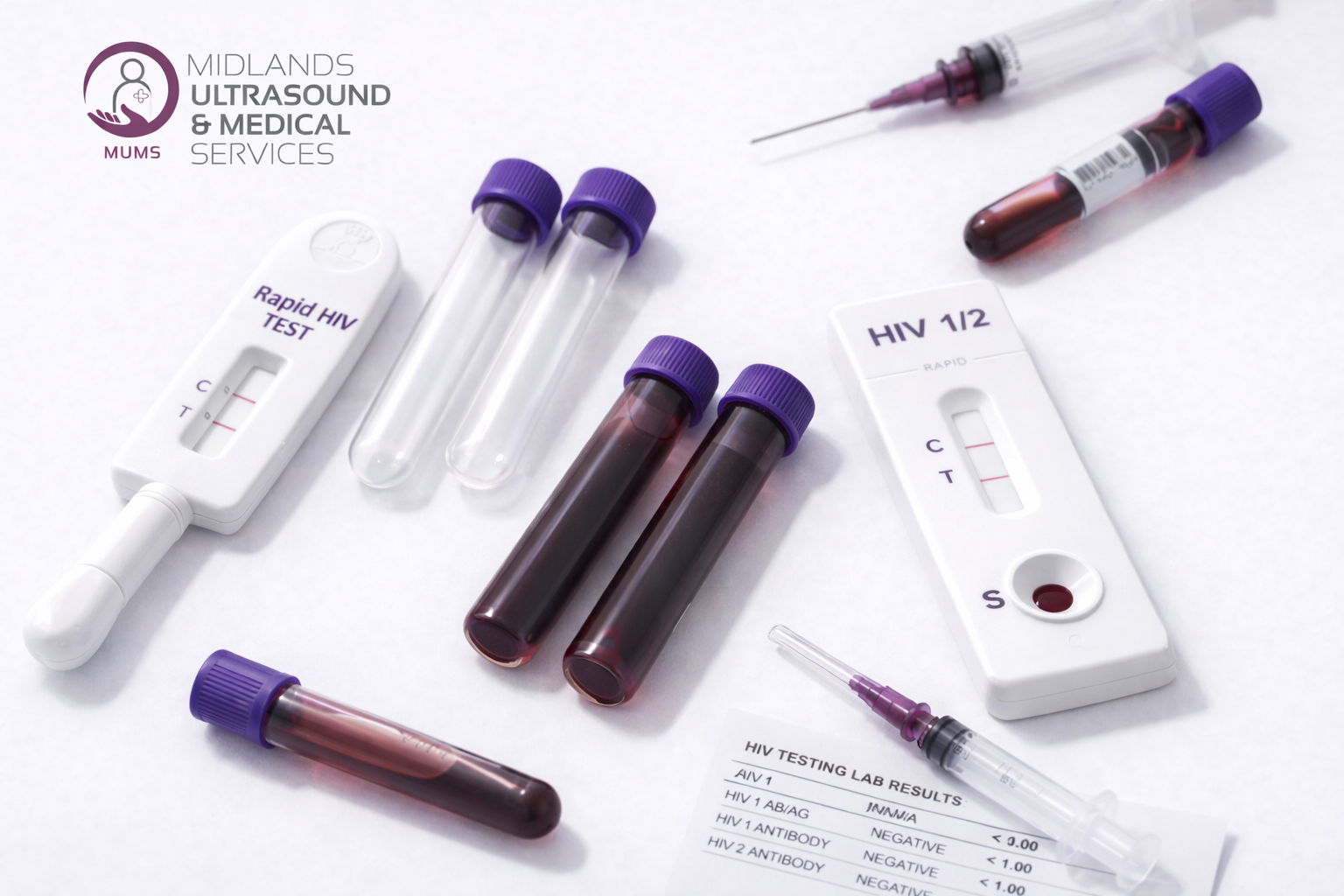Human Immunodeficiency Virus
Average rating: 4.88 / 5 Read all reviews

| 10 day Early Detection Test | £220 | |
| 28 day HIV Duo test | £85 | |
| Rapid HIV test | £95 |
MUMS offer private and confidential sexual health testing 6 days a week at our clinic in Solihull. We offer a wide range of HIV Testing.
You can choose to have HIV testing at MUMS with:
HIV Tests and costs:
HIV testing is also included in our combined STI multiple tests.
Private testing lets you get tested confidentially or anonymously, with faster results.
MUMS Early detection (10 days post exposure) test and HIV Duo (28 days post exposure) – takes 2 days for a result.
We use an accredited laboratory for accurate testing.
More accurate early testing (lab-based blood tests)
MUMS 20 min test provides an almost instant result but if positive requires a laboratory confirmatory test so we recommend a laboratory test but understand that some patients may still want an instant result.
HIV stands for Human Immunodeficiency Virus.
It is a virus that attacks the body’s immune system, specifically CD4 (T) cells, which help the body fight infections. If HIV is not treated, it weakens the immune system over time.
Key points about HIV
What it does:
HIV damages the immune system, making it harder to fight off infections and certain cancers.
How it spreads:
HIV is transmitted through:
It is not spread by casual contact like hugging, kissing, sharing food, or mosquito bites.
Symptoms:
HIV vs AIDS:
HIV is the virus
AIDS (Acquired Immunodeficiency Syndrome) is the advanced stage of HIV when the immune system is severely damaged
With modern treatment, most people with HIV never develop AIDS
Treatment:
There is no cure, but antiretroviral therapy (ART) allows people with HIV to live long, healthy lives and prevents transmission to others when the virus is suppressed.
Prevention:
Knowing your HIV status can protect your health and the health of others. Regular testing and retesting are advised if you continue to be at risk. A repeat test is recommended with every partner change.
The incubation time and results turnaround time vary depending on which test is performed:
10-day HIV tests have an incubation period of 10 days.
28-day HIV tests have an incubation period of 28 days.
There are several rapid HIV tests available which have different incubation periods and different times taken to run the test. Our instant rapid HIV test is an anti-body test which has a 45-day incubation period and takes 20 minutes to give an accurate reading.
There is currently no cure for HIV or AIDS.
Nowadays – HIV is not life threatening if it is detected early and managed by a specialist.
People with HIV who take treatment will remain healthy and should have a normal life expectancy.
Treatment consists of highly active anti-retroviral therapy (HAART), and advances continue to be made improving both quality of life and prognosis.
MUMS is a specialist Consultant-led private medical practice based in Solihull, Birmingham. Please call us on 0121 704 2669 for further information.
We have ample parking and great reviews.
Copyright © 2026 Midland Ultrasound and Medical Services | Company number: 04844920